Malaysia's $100 billion luxury estate was supposed to be a 'living paradise.' Instead, 6 years into development, it's a ghost town full of empty skyscrapers and deserted roads take a look.
Marielle Descalsota

- Forest City is one of the most controversial developments in Malaysia's history.
- The $100 billion development is a ghost town with less than 5% of the expected number of residents.
Forest City, a luxury estate in southern Malaysia, is one of the most controversial developments in the country's history. Six years into development, the $100 billion is already a ghost town.
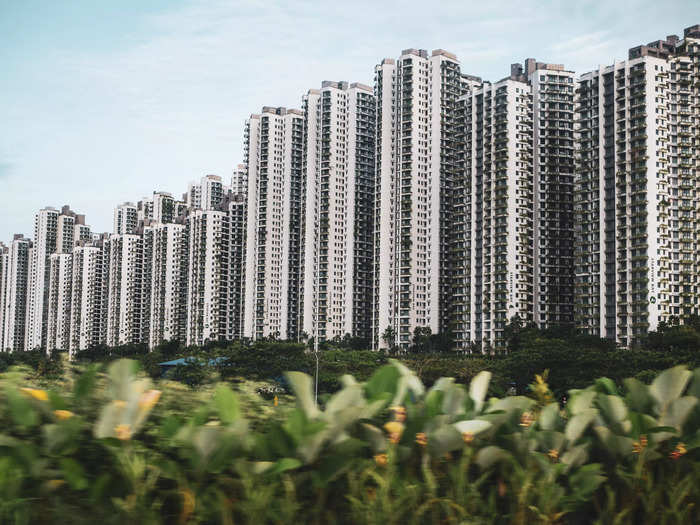
The development is in Johor Bahru, Malaysia, just north of Singapore. It was built by Country Garden, China's largest property developer.
Forest City is huge: It spreads across 1,740 hectares, or four times the size of city-state Monaco. Around 700,000 people were initially expected to live in the estate.
But as of 2019, only around 500 people lived in the estate, according to a 2019 report by Foreign Policy. An expert who declined to be named for security reasons told me the estate's population has since grown to several thousand — which is still less than 5% of the expected number of residents.
Country Garden declined to comment on the number of residents in the development.
In early May, I flew from Singapore to Malaysia and then took a car to Garden City. As my taxi driver drove into the city, I was struck by the size of the development — it felt like I had been transported into a futuristic movie set.
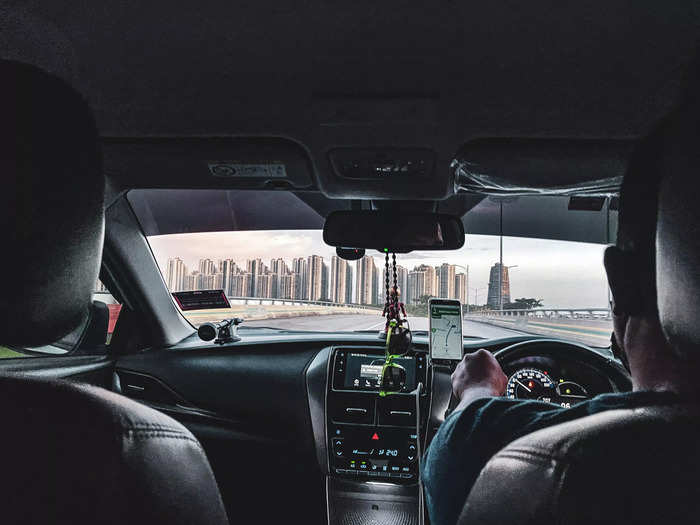
While I waited for my car at the airport in Johor Bahru, I asked a couple of locals about Forest City. Many of them didn't know anything about it. One person told me it was remote, and another described it as an enclave, but that was all the information I could gather.
As we drove into Forest City, I saw signs of development everywhere: dozens of luxury apartment buildings, a sales gallery, a mall, an international school, and two resorts.
What I didn't see were signs of life.
Once I got to the reclaimed island, I paid a visit to Forest City's showroom. A massive model of the development was the centerpiece of the showroom. Many apartments were labeled "selling fast" or "sold out."
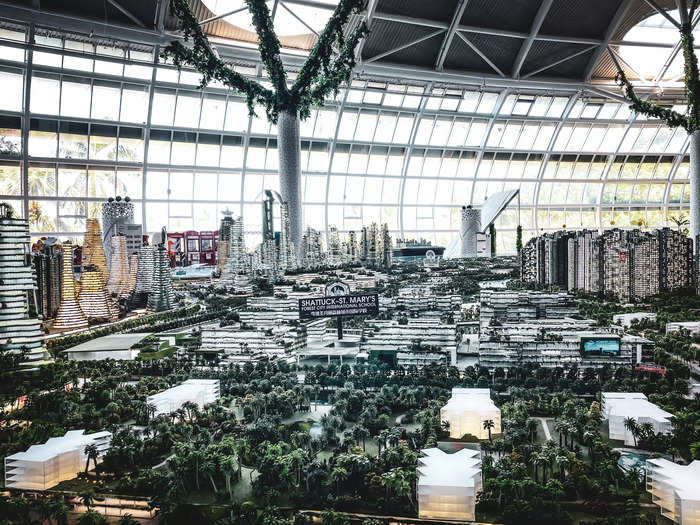
Country Garden told me it has sold more than 20,000 residential units to date. It is unclear exactly how many units have been constructed in Forest City.
Prices in the development have soared in the past couple of years. In 2017, apartment prices in Forest City started at 740,864 Malaysia ringgit ($170,000).
Today, condo apartments in the development retail for as much as 5 million Malaysia ringgit ($1.14 million). For comparison, the average sale price of property in Johor Bahru, where Forest City is located, is 619,633 Malaysia ringgit ($141,000).
Next, I headed over to a residential area called Kylin Apartment Complex. It looked big enough to accommodate hundreds of people, but the streets leading up to it were empty — I only saw one or two cars.
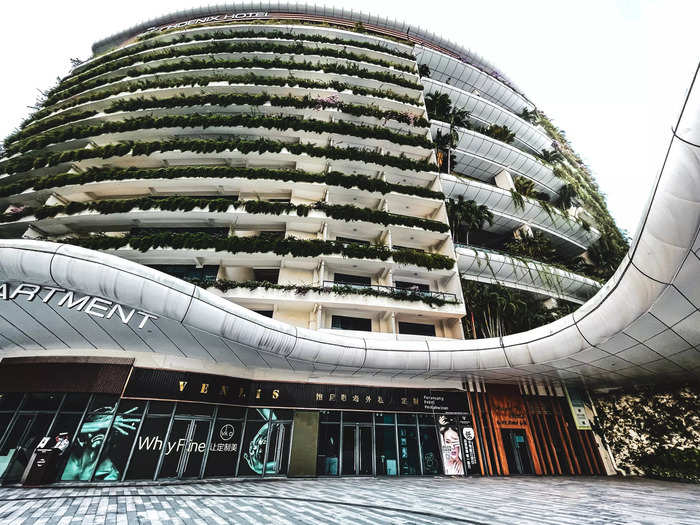
This would continue to be a theme repeated time and time again throughout my visit: structures built on a huge scale, almost completely devoid of any human presence.
One staff member, who, like everyone else, declined to be named, told me that around 20 people live in the complex. Even so, many buildings continue to be maintained by workers and cleaners, according to a 2022 report by Malaysia Now.
Every shop I saw in the complex appeared to be closed, empty, or abandoned.
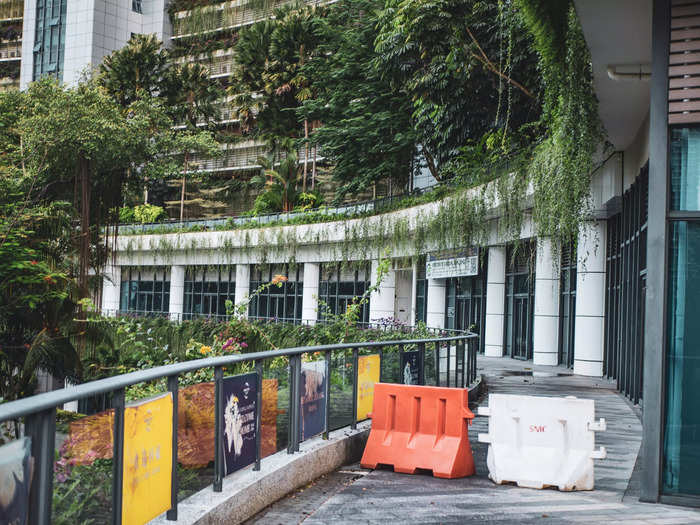
Chinese restaurant Shun De Gong and Singaporean wedding company Venlis are among the businesses that used to operate in the vicinity.
One staff member told me the stores have been closed or vacated for over two years.
Many retail spaces appeared to be used for storage. I peered through the windows and saw carton boxes and prop furniture.
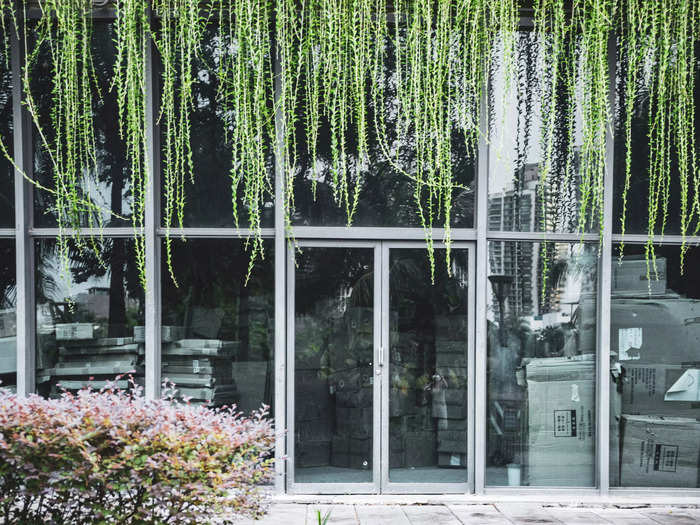
There were three eateries open during my visit to the reclaimed island. Even then, I only saw a handful of people dining at the restaurants that were open.
There are two resorts in Forest City. At the time of my visit, one of them had been closed for two years, according to a security guard I spoke to at Kylin Apartment Complex. Out back, dragonflies were breeding in the pool, and the water looked discolored.

The tinted doors of Forest City Marina Hotel were locked, but there was a security guard manning the lobby inside.
The only other hotel in the development is called Forest City Golf Hotel. I spent three nights in a deluxe suite there, and unlike the rest of Forest City, it was bustling with people, mostly golf enthusiasts from around the region.
As I headed for the beach, I found an open-air wedding venue. The trellis was decorated with fresh flowers, striking a stark contract with the tarnished benches and pillars.
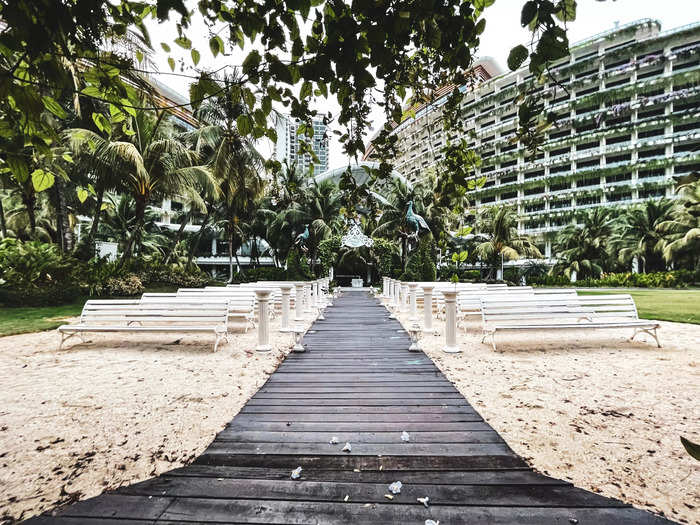
I looked online to see if there were people who were married in the resort, but couldn't find any.
It wasn't until I got to the beach that I saw signs of life.
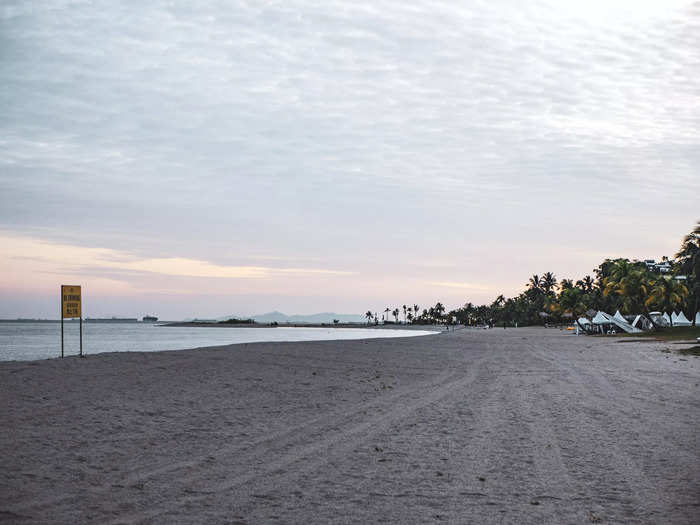
Signs on the beach warned people not to swim in the ocean. There was only one boat, which belonged to Forest City, docked on the shore.
Down on the beach, I found dozens of discarded beer bottles.
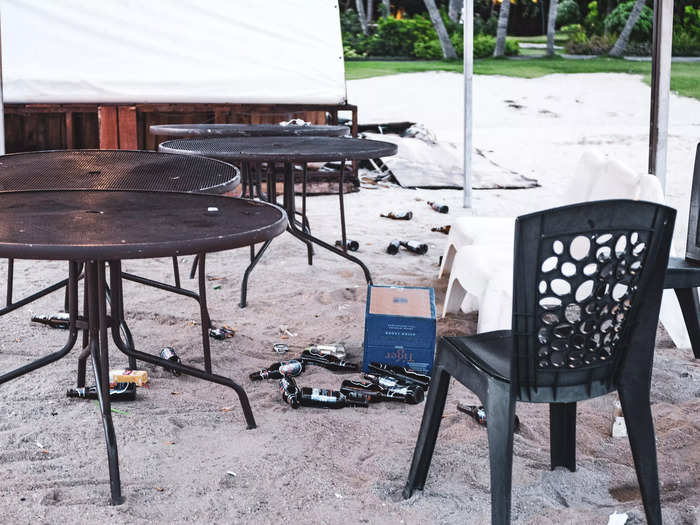
Malaysia's Sharia Law forbids Malaysian Muslims from drinking alcohol and vendors from selling alcohol to Muslims. The country has the third-highest alcohol tax in the world, behind Norway and Singapore.
Forest City, however, is in Malaysia's Iskandar Special Economic Zone, which gives it duty-free zone status and makes items like alcohol and cigarettes very cheap.
I spoke to a Malaysian couple who was vacationing from a neighboring state. One of them said people only visited Forest City to drink, and that "without the duty-free, there would be no people."
Later, I stumbled upon the estate's mall, where the lights were flickering and the smell of cigarettes wafted through the air. "No smoking" signs were plastered on walls.
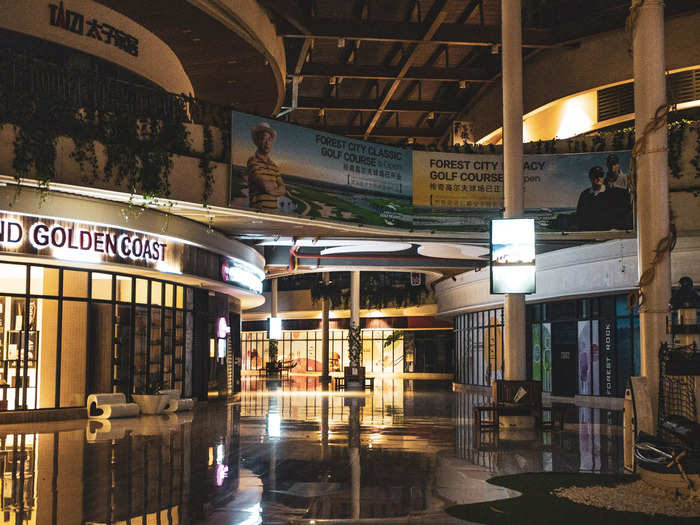
The mall was huge, but, with the exception of one cafe, there were barely any businesses operating. Cigarette butts were discarded on the escalators and floor.
An online review posted a year ago described the mall as very quiet. Things did not seem any different during my visit.
Finally, I spotted the duty-free shop — and, just as the couple on the beach had said, it was indeed full of people. It was the busiest spot in the entire development.
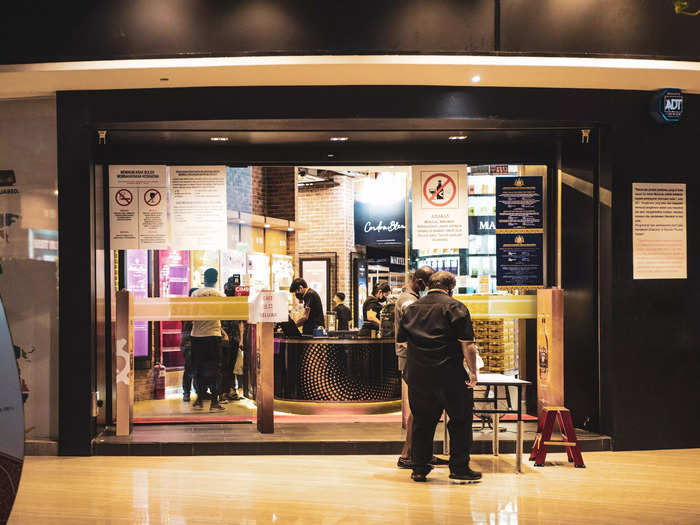
Most of the people I saw were buying alcohol and cigarettes.
People are allowed to purchase up to one crate of beer, per a 2021 report that quoted Malaysia Crime Watch chairman R. Sri Sanjeevan. Forest City has checkpoints that ensure duty-free items are not smuggled out.
At dusk, groups of people began gathering in the mall's lobby and drinking. I asked a dozen people if they lived in Forest City, the answer was always the same: They said they were visiting from other parts of Malaysia.
But Forest City's problems run deeper than merely its lack of interest among buyers and visitors. While it has lauded itself a "living paradise" and a "green, futuristic city," some experts have described it as an ecological ticking time bomb.
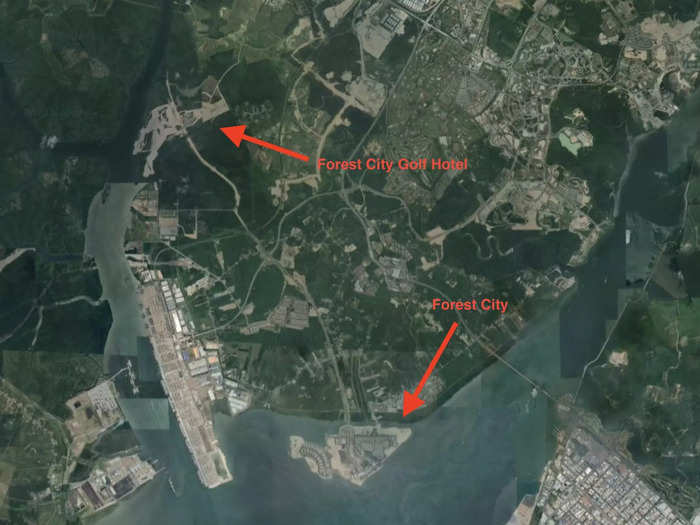
Forest City is partially built on reclaimed land from the Straits of Johor. Around 163 million cubic meters of sand were dumped into the ocean to build the city.
Some experts say the rapid speed of construction coupled with the reclamation of land is a dangerous combination.
"In spite of the technological innovations used to reclaim and build, sand dumped on mud seabed needs more than the publicised time to settle," Serina Rahman, a Malaysia-based scientist and researcher, wrote in her 2017 book "Johor's Forest City Faces Critical Challenges." Cracks have appeared on some of the estate's buildings and sections of road have sunk into the ground, she wrote.
Country Garden told me the company had obtained "all the relevant approvals and permits for its development" and the construction of the city was in "accordance with the laws and regulations." The company added that it has "never neglected the natural landscape, environmental protection and CSR initiatives."
Several locals and experts alike said the construction of Forest City took a particular toll on fishermen who lived in nearby villages.
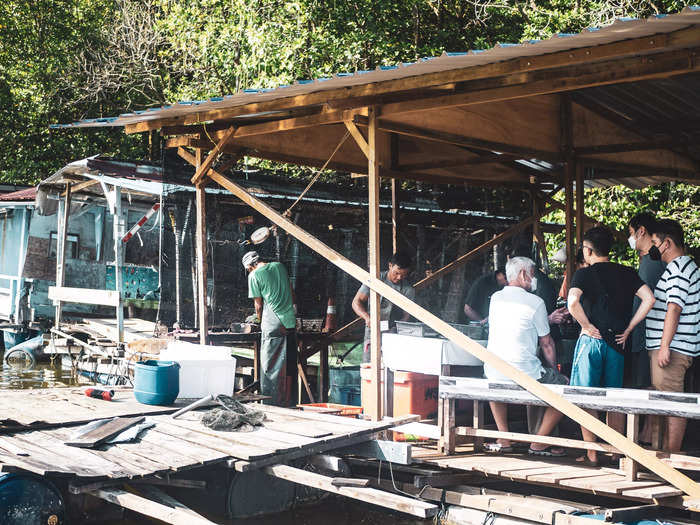
I followed a road to the outskirts of Forest City and into a nearby fishing village, where I met Serina, the scientist whose research focuses on Forest City's effects on fishing villages.
In a 2017 report, she documented the ways in which construction projects like Forest City end up costing fishermen their livelihood. Some fishermen, Serina wrote, weren't given access to apply for licenses from the Department of Fisheries; these unlicensed fishermen were then excluded from assistance and subsidy schemes, and were not eligible for compensation from developers.
The Department of Fisheries did not respond to my requests for comment.
The pattern of land reclamation in the Straits of Johor — only part of which can be attributed to Forest City — has also led to a severe decline in the amount of fish local fisherman are able to catch, Serina said.
"Fishermen can hardly get 20 kilograms when they're out at sea," Serina said. "The boats are small and because of the land reclamation projects, they have to go further into the sea, making their jobs even more dangerous."
One local told me fishermen will "die before they catch fish."
Country Garden spent $25 million in compensation to some 250 fishermen for losses in their catches, according to a 2018 report from environmental site Mongabay.
On a road that leads back to mainland Johor Bahru, I found a shed surrounded by debris. Forest City housed its construction workers on sites similar to this one, several locals told me. The development's logo was displayed right outside the shed.
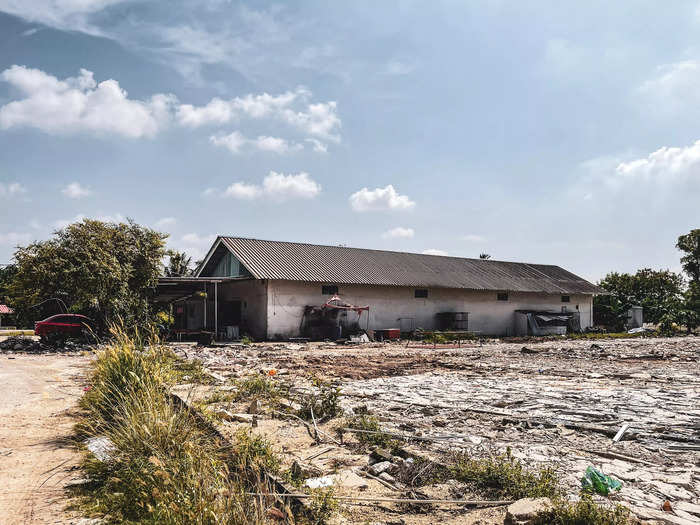
One local told me thousands of workers used to live in dormitories that were built in their villages.
In the shed I found a handful of men, who spoke minimal English but said they worked for Forest City. Most of them were from Myanmar, India, and Bangladesh.
The development's workforce comprised of low-wage workers from South Asia or mainland China, Foreign Policy reported in 2019. Some had entered Malaysia on social visit passes, but were forced to return home after learning of their illegal work status, or that they were going to be paid much less than they anticipated, according to an investigative report by local news outlet Malaysiakini.
Serina wrote in the 2017 report that Forest City restricted the movement of workers in the evenings by setting up guard posts. Many workers had not received their salaries and some raided a nearby island for food, she wrote, citing local media reports.
Country Garden declined to comment on the reports by Malaysiakini and Serina. The company told me the workers, who worked for a contractor hired by the company, leased sites for a "workers camp." The company added that it no longer leases these camps.
As night settled around the development, the skyscrapers remained tellingly dark. Only a few apartments lit up a night.
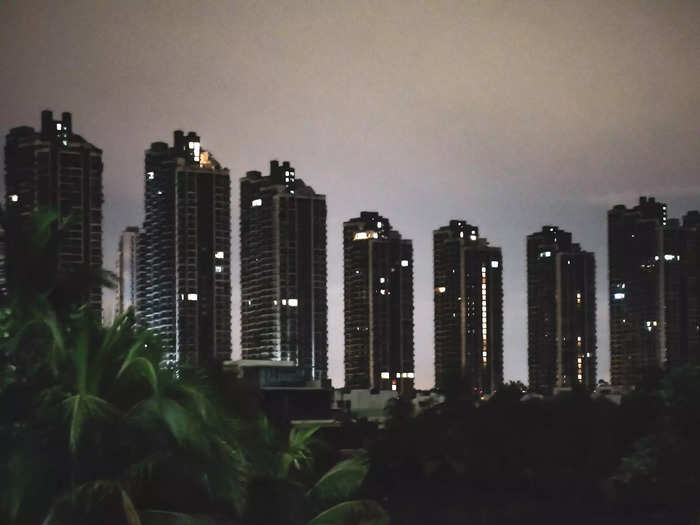
Muhammad Najib Razali, a professor of real estate at Malaysia Technology University, has conducted extensive research on urban planning and real estate in Johor Bahru. I met him in Forest City and asked him why the development was so empty.
"The main reason is that the apartments are expensive — they are unaffordable for locals," he said. The median annual salary in Malaysia was 24,744 Malaysia ringgit (around $5,651) in 2020.
As for foreign buyers, there's another obstacle keeping them from snapping up property. "We spoke to the developer and they told us that its main target buyers are Singaporeans and foreigners," Najib said.
But Singaporeans have been dissuaded by the number of failed projects in Malaysia, he continued. In 2021, there were 79 abandoned housing countries in the country. While Forest City continues to be a development in progress, its reputation as a ghost does not help its bid to attract global buyers.
"The property has failed to attract Singaporeans, who prefer to look and see the properties in person first before buying," he said.
Country Garden, for its part, believes the development will thrive in the future — though it acknowledges that future may not be a near one.
"As the economic activities resume and travel bans are lifted, we are looking forward to Forest City to thrive again," the company told me in an email. "The process will definitely take some time and not by immediate effect."
READ MORE ARTICLES ON
Popular Right Now
Popular Keywords
Advertisement